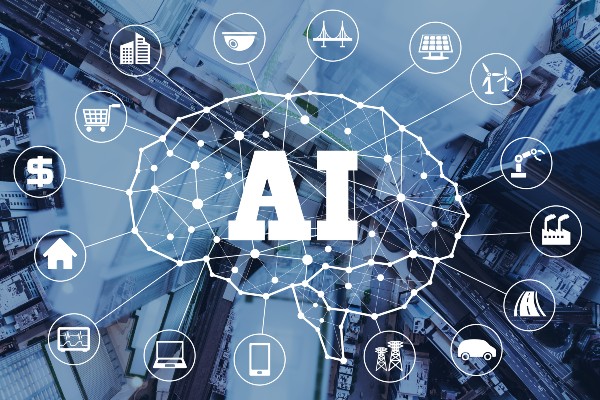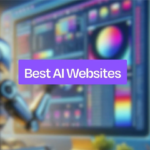Revolutionizing Healthcare with AI Applications
The marriage of AI and healthcare is ushering in a new era of patient care. Innovative AI applications are playing a pivotal role in revolutionizing the way medical services are delivered and experienced. Let’s explore how these cutting-edge technologies are making a significant impact on the healthcare landscape:
1. Merative (Formerly IBM Watson Health): Revolutionizing Diagnosis
AI applications, exemplified by Merative (Formerly IBM Watson Health), are transforming the diagnostic process. This tool’s cognitive computing capabilities analyze vast datasets, providing healthcare professionals with valuable insights for precise and efficient diagnosis and treatment planning.
2. Viz.ai: Innovative Neurological Diagnostics
In the realm of neurology, Viz.ai is pioneering innovative AI tools for rapid diagnostics. By employing advanced algorithms, Viz.ai enables swift identification and treatment of neurological conditions, particularly stroke, significantly improving patient outcomes.
3. Enlitic: Deep Learning for Accurate Diagnoses
Enlitic harnesses the power of deep learning to analyze medical images and pathology slides. This innovative AI application enhances diagnostic accuracy by identifying patterns and anomalies, ensuring healthcare professionals have the most comprehensive information for effective decision-making.
4. Regard: Personalized Patient Care
Regard focuses on personalized patient care, leveraging AI to analyze electronic health records. This tool tailors treatment plans based on individual patient needs, showcasing the transformative impact of AI in providing patient-centric healthcare solutions.
5. Twill: Accelerating Clinical Research
In the realm of clinical research, Twill’s AI-powered platform is streamlining processes and accelerating the pace of trials. By automating data analysis and patient recruitment, Twill is contributing to more efficient research practices and quicker availability of innovative treatments.
Smart Healthcare with AI Technology
1. Powered Diagnostics and Imaging
AI-driven diagnostic tools enhance the interpretation of medical images, leading to quicker and more accurate diagnoses.
2. Telemedicine and Remote Patient Monitoring
The integration of AI facilitates remote patient monitoring and telemedicine, allowing for more accessible and convenient healthcare services.
3. Robotics in Surgery
AI-powered robotics enhance surgical precision, revolutionizing complex procedures and minimizing patient recovery times.
4. Medical Records Management
Efficient management of electronic health records through AI ensures secure and streamlined access to patient information.
5. Chatbots in Communication
AI-driven chatbots assist with administrative tasks, appointment scheduling, and answering general health queries, improving communication between healthcare providers and patients.
6. Reduction of Medical Errors
AI tools contribute to a reduction in medical errors by analyzing vast datasets and identifying potential discrepancies in diagnoses and treatment plans.
7. Early Detection and Diagnosis using AI
AI excels in early detection of diseases, enabling prompt interventions and improved patient outcomes.
8. Making Healthcare Affordable
Automation through AI reduces administrative overheads, making healthcare services more cost-effective and accessible to a broader population.
The Role of Artificial Intelligence in Evolution Healthcare
1. Predictive Analytics for Personalized Treatment Plans
AI applications are evolving to include predictive analytics, allowing healthcare providers to tailor treatment plans based on individual patient characteristics and predicted responses.
2. Enhanced Drug Discovery and Development
AI is set to revolutionize the drug discovery process, expediting research and development timelines and leading to the discovery of more effective and targeted treatments.
3. AI-driven Virtual Health Assistants
Virtual health assistants powered by AI will play a more prominent role in patient care, providing real-time information, answering queries, and offering personalized health advice.
4. Blockchain Integration for Secure Health Data
AI applications will work in tandem with blockchain technology to ensure the secure and transparent management of health data, addressing concerns related to privacy and security.






